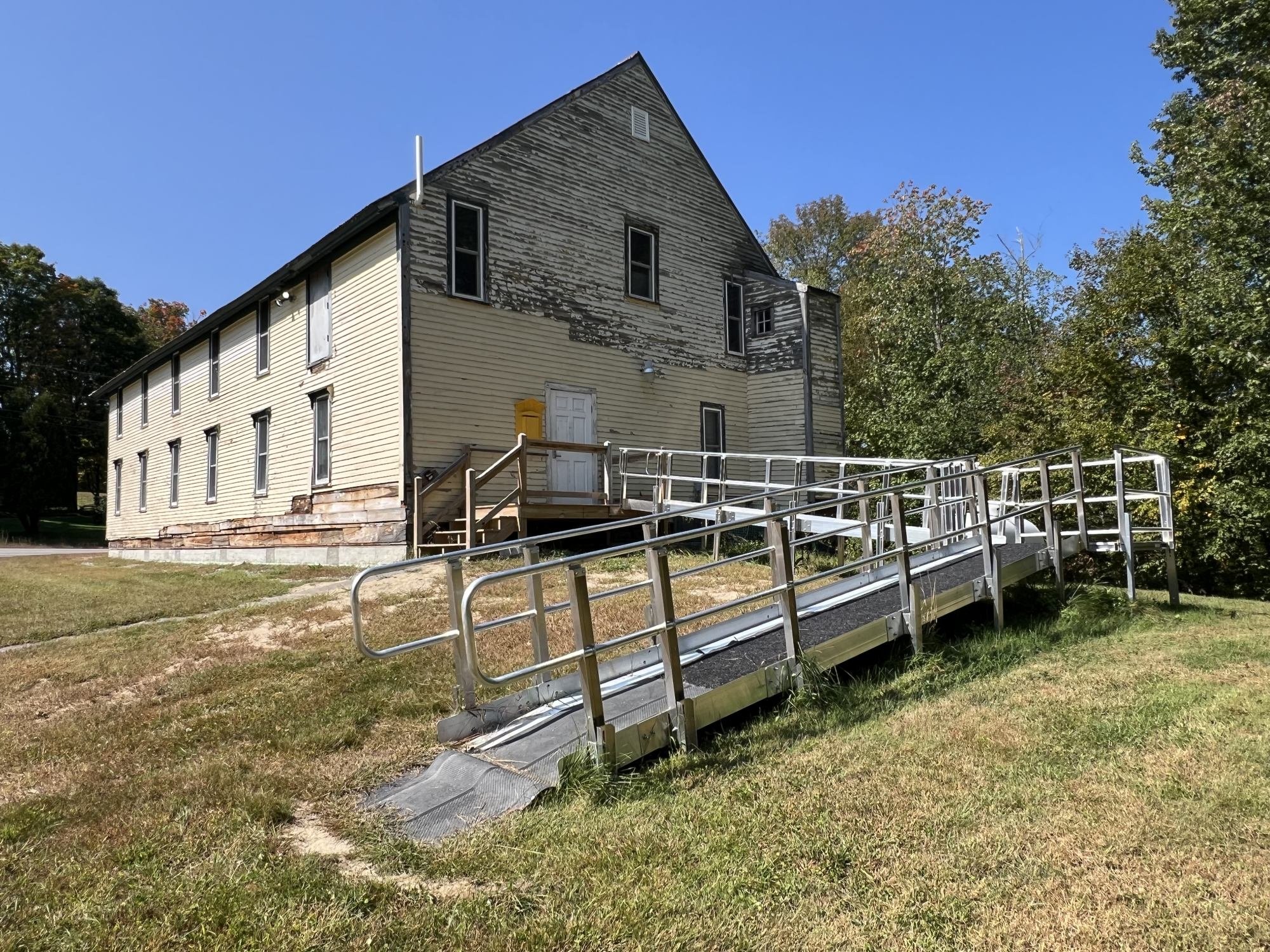




















Story
In 1877, members of the Fayette Starling Grange #156 decided to build a permanent home for their meetings. Land was donated by T.F. Palmer, and the building committee was formed by civil engineer, Rev. E.R. French, and two local carpenters, T.F. Palmer and Alfred Tuttle. Starling Hall was dedicated on March 8, 1879, making it one of the first purpose-built Grange halls in the state. It became the center of activity for the area hosting the Farmers’ League, the North Fayette Lyceum, the Sons of Temperance, and numerous balls, oyster suppers, and local musicals. After the Grange disbanded in 1986, the Town of Fayette accepted ownership and has used it for community-facing purposes ever since.
In 2014, town leadership began to consider selling the property and the nonprofit Friends of Starling Hall (FOSH) was formed in response. With initial guidance from Maine Preservation, FOSH successfully nominated the property to the National Register of Historic Places and has since partnered with the Town of Fayette to forward its preservation. The most dramatic work occurred in the fall of 2017, when the hall was moved and set down on a new foundation. The building had been dangerously close to the road, risking close calls with cars and sustaining damage from winter plows. The lift allowed for critical repairs to the sills and reinforcement of the first-floor joists.
Since then, FOSH has also built a new code compliant entrance, drilled a new well, and installed new electrical, plumbing, and heating and cooling systems. Construction of a ramp at the rear of the building has made the first floor more accessible and an updated commercial kitchen has allowed for the space to be used for community meals, in addition to public meetings and fundraisers. The work in total has cost approximately $300,000. A third of that originates from a town bond, with the remaining coming from FOSH-led fundraising and nearly $40,000 from other Town-approved sources.
Threat
The successful public-private partnership has been a locally contentious issue. A vocal group of residents has openly opposed the work, citing the slow progress of the project and decrying the use of public funds. This opposition was felt most acutely in 2022, when Senator Susan Collins awarded $500,000 to complete the building’s rehabilitation, but a town vote on matching funds thwarted the grant.
There is still significant work needed to ensure the use of Starling Hall as a community center, including exterior carpentry repairs and painting, accessibility improvements for the second floor, and interior finishes. However, those opposed to using town funds have gathered enough signatures to trigger a referendum this November that would require the Town to sell the property:
Shall the citizens of Fayette request the selectboard and town manager to take all necessary action to sell the Starling Hall currently owned by the town before the end of the year of 2025?
The future of Starling Hall is at a significant juncture with the results of the November referendum likely deciding its fate as a publicly owned community space.
How to get involved
Fayette voters can help ensure the building continues to be a public asset by opposing the local ballot question in November.
Meanwhile, Maine voters can “Vote Yes on 3” to create a funding source for the preservation of historic community buildings like Starling Hall. The third referendum question on this November’s ballot asks Mainers to support a $10 million bond that would create a state grant program administered by the Maine Historic Preservation Commission to fund repairs on National-Register listed buildings owned and stewarded by nonprofit organizations or local governments.
To learn more about Starling Hall and how to help FOSH, please visit https://starlinghall.org/.
Photo Credits: Friends of Starling Hall (FOSH); Maine Preservation

